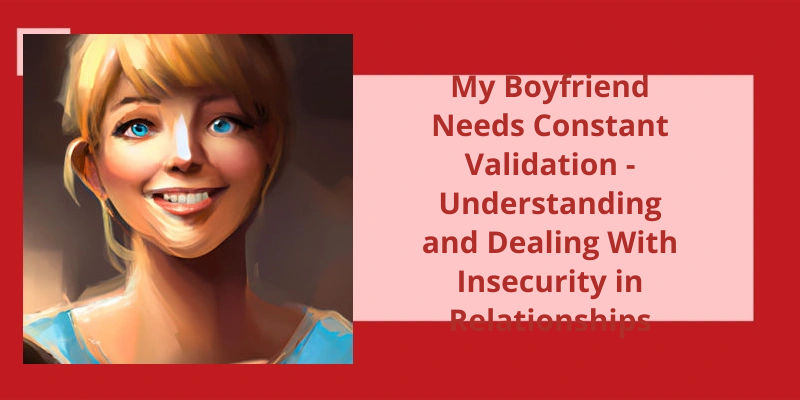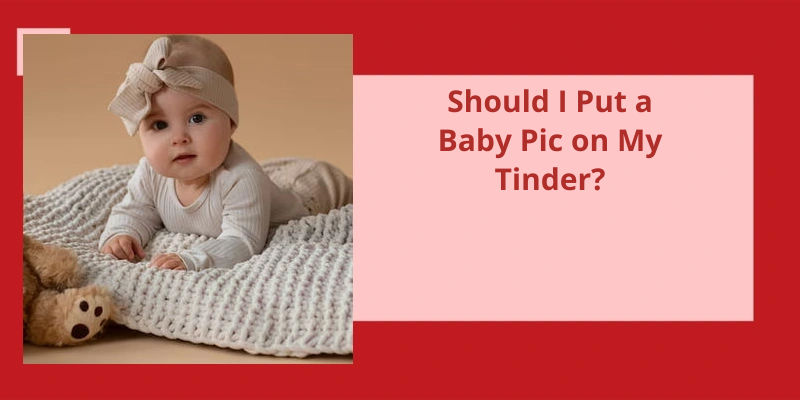Have you ever found yourself wondering if your crush feels the same way about you? The mere thought of their feelings being one-sided can be heart-wrenching and filled with uncertainty. It's quite natural to seek reassurance and try to decode their actions for any signs of interest. One of the most telling indicators is observing how they act around you. If they don't exhibit any special behavior or treat you with distinctiveness, there's a chance that their interest may not extend beyond friendship. Another aspect to consider is their ability to remember details about you and their willingness to invest in a deeper, more personal bond. The journey of deciphering whether your crush is one-sided can be an emotional rollercoaster, but understanding their behavior and actions can provide you with much-needed clarity.
Does Crush Mean One Sided Love?
Crushes, by their very nature, tend to be one-sided. They’re often intense infatuations that develop from a distance, fueled by admiration and a sense of longing. While they can bring immense joy and excitement, they can also be incredibly frustrating and confusing. Unfortunately, this unbalanced dynamic is quite common and affects both genders in equal measure.
When we’ve a crush on someone, we often idealize them, projecting our desires and fantasies onto them without truly knowing who they’re as a person. We create an image of our crush in our minds, based on limited interactions or even just superficial observations. This makes it easy for us to develop strong feelings for them, while they may be completely unaware of our existence or uninterested in us.
The imbalance in a one-sided crush can cause emotional turmoil. We find ourselves obsessing over our crushs every move, analyzing every interaction we’ve with them, hoping for any sign that they might feel the same way. We become hyper-aware of their attention and interpret every gesture as a potential indicator of their interest in us. This constant state of uncertainty and longing can be emotionally draining and can lead to a rollercoaster of emotions.
However, it’s important to remember that not all crushes are destined to be one-sided. Sometimes, our feelings may indeed be reciprocated. In such cases, a crush can evolve into a mutually fulfilling relationship. But it’s crucial to approach our crushes with caution and remind ourselves that they’re ultimately their own individuals with their own thoughts and feelings. It’s essential to respect their autonomy and not place unrealistic expectations on them.
How to Communicate Your Feelings to Your Crush Without Making Them Uncomfortable
- Start with casual conversations and find common interests.
- Show genuine interest in their life and ask open-ended questions.
- Compliment them sincerely and in a non-creepy way.
- Use humor to lighten the mood and create a comfortable atmosphere.
- Be respectful of their personal boundaries and avoid being too pushy.
- Pay attention to their body language and verbal cues to gauge their comfort level.
- Share your own feelings gradually and in a subtle manner.
- Listen actively to what they say and validate their emotions.
- Avoid making any assumptions or putting pressure on them to reciprocate your feelings.
- Give them space and time to process their own emotions.
- Respect their decision if they aren’t interested in pursuing a romantic relationship.
- Continue to be a good friend and maintain a positive and supportive connection.
Navigating matters of the heart can be challenging, especially when it comes to unrequited love. While crushes and one-sided love share similarities, the latter often carries a deeper intensity and can endure for a prolonged period. However, if you find yourself grappling with the pain of unreciprocated affection, it’s important to remember that you’re not alone. Seeking support from a therapist can provide an outlet to process and understand your emotions better.
Is Crush and One Sided Love Same?
Crushes and one-sided love are often used interchangeably, but they aren’t exactly the same. While both involve intense feelings towards someone, one-sided love typically refers to unrequited feelings that aren’t reciprocated by the other person. It’s a more profound and enduring emotion than a simple crush. Crushes, on the other hand, can be fleeting and may not necessarily involve unreciprocated feelings.
It can cause emotional turmoil, heartache, and a sense of longing. These feelings may persist for an extended period, making it difficult to move on. It’s important to remember that many people have gone through similar experiences, and you aren’t alone in your struggle.
If you find yourself constantly questioning whether your crush is one-sided, it may be helpful to seek support from a therapist or counselor. They can provide a safe and non-judgmental space for you to express your feelings and explore ways to cope with the situation. Talking to a professional can help you gain insight, develop self-awareness, and learn effective strategies to navigate through this challenging time.
During therapy, you may discover underlying reasons for your attachment or patterns of seeking validation through romantic relationships. It can also be an opportunity to work on building self-esteem and exploring healthier ways to cope with rejection. Remember, seeking therapy doesn’t mean there’s something wrong with you; it’s a brave and proactive step towards self-improvement and emotional well-being.
In addition to therapy, it can be helpful to reach out to friends or loved ones for support. Sharing your feelings with trusted individuals can provide comfort and reassurance. Engaging in self-care activities such as journaling, exercising, or pursuing hobbies can also help alleviate stress and promote overall emotional balance.
Ultimately, it’s important to remember that one-sided love doesn’t diminish your worth or value as a person. It’s a normal part of the human experience, and everyone is bound to encounter it at some point in their lives. By seeking support, exploring your emotions, and practicing self-care, you can gradually heal and move forward towards a healthier emotional state.
Crushes often occur when there’s a strong attraction or admiration towards someone, but they can also be fleeting infatuations that don’t necessarily indicate deeper feelings. On the other hand, being in love goes beyond just the physical and can involve a deep emotional connection and commitment. While it’s possible to have a crush while being in love, it’s important to differentiate between the two and consider how they may affect a committed relationship.
Can You Have a Crush and Be in Love?
Can you’ve a crush and be in love? It’s a question that many people have pondered at some point in their lives. And the answer is yes, you can. In fact, it’s common for people to develop crushes on other people even when they’re happily committed to someone else. Crushes can be a way for people to explore their own feelings and desires, as well as to think about what they want in a relationship.
A crush is often characterized by infatuation and strong attraction towards someone. It can be a fleeting feeling or last for a longer period of time. Crushes are typically based on physical appearance, personality traits, or a combination of both. They can happen to anyone, regardless of age or relationship status.
Having a crush while being in a committed relationship doesn’t necessarily mean that there’s something wrong with the relationship. It’s human nature to be attracted to and find other people appealing, even when we’re in love with someone else.
However, it’s important to distinguish between a crush and being in love. Love goes beyond physical attraction and infatuation. It involves a deeper emotional connection, trust, and vulnerability with another person. Love is often long-lasting and involves a commitment to build a life together.
If you find yourself questioning whether your crush is just a passing infatuation or something more, it can be helpful to reflect on your own feelings and desires. It’s important to communicate openly and honestly with your partner about your thoughts and emotions.
The Psychology Behind Crushes and Infatuation
Crushes and infatuation often stem from the psychology of attraction and the release of chemicals in the brain. When someone develops a crush, their brain becomes flooded with dopamine, a neurotransmitter associated with pleasure and reward. This surge of dopamine can lead to feelings of euphoria and obsession.
In some cases, crushes may be one-sided, meaning that one person has strong feelings for another person who doesn’t reciprocate those feelings. This can be a frustrating and painful experience, as it can leave the person with unrequited feelings feeling rejected and dejected.
The reasons for one-sided crushes can vary. Sometimes, it may be due to a lack of awareness or understanding on the part of the other person. They may simply not realize or perceive the intensity of the feelings directed towards them. Other times, the individual may be aware of the crush but not feel the same way.
It’s important to remember that crushes are a normal part of human experience, and many people have experienced unrequited feelings at some point in their lives. While it can be challenging, it’s crucial to respect the other person’s feelings and boundaries and try to move on if the feelings aren’t reciprocated.
Understanding the psychology behind crushes and recognizing that they’re complex emotional experiences can help individuals navigate their own feelings and make informed decisions about how to proceed.
Identifying a one-sided crush can be a perplexing journey, as it requires a keen eye for signs of an imbalanced relationship. One glaring indication is when your efforts and support for the other person go unnoticed or unreciprocated. The relationship feels like a one-way street, with you carrying the weight alone. Doubts begin to creep in, and you find yourself questioning your worth and feeling insecure. Making excuses for their behavior becomes habitual, while negative emotions overshadow the fleeting positive moments. These signs may be alarming, but acknowledging them will pave the way for healthier connections.
How Do You Know if It’s a One Sided Crush?
When it comes to crushes, it can be hard to determine whether the feelings are mutual or if it’s just a one-sided infatuation. It’s important to recognize the signs that indicate a one-sided crush in order to save yourself from unnecessary heartache and disappointment.
One common sign is when your crush isnt there for you in the same way that you’re there for them. If you constantly find yourself going out of your way to support them, listen to their problems, and offer a helping hand, but they rarely reciprocate those gestures, it may be a strong indication that your feelings arent being reciprocated.
Another telltale sign is if you seem to be the only one putting effort into the relationship. If youre constantly the one initiating conversations, making plans, or trying to spend time together, while your crush seems indifferent or unresponsive, it may be a sign that theyre not as invested in the relationship as you are.
Feeling insecure and constantly questioning whether youre enough for your crush is another sign of a one-sided crush. If you constantly doubt your own worth or feel like youre not measuring up to their expectations, it’s likely that the relationship is unbalanced and lacking mutual affection.
Making excuses for your crushs behavior is another red flag. If you find yourself constantly justifying their actions, overlooking their flaws, or defending their behavior to others, it could indicate that youre trying to convince yourself that the relationship is more than it actually is.
Lastly, pay attention to the emotional balance of your feelings. If you find that the thoughts and emotions surrounding your crush are predominantly negative, such as feelings of frustration, sadness, or disappointment, it may suggest that the relationship is one-sided. A healthy and balanced connection should evoke a mix of positive emotions, such as happiness, excitement, and contentment.
It’s important to prioritize your own emotional well-being and be open to finding connections with those who can meet you in the middle.
Signs of a One-Sided Crush in a Long-Distance Relationship
If you’re in a long-distance relationship and wondering if your crush is one-sided, there are some signs you can look out for. One major sign is if you’re always the one initiating contact or making plans to meet up. If your crush rarely reaches out to you or seems uninterested in spending time together, it could be a sign that their feelings aren’t as strong as yours. Another indication of a one-sided crush is if your partner seems distant or avoids deep conversations about the future of your relationship. Lack of emotional intimacy can suggest that your crush may not be as invested in the relationship as you are. Additionally, pay attention to how your crush interacts with others on social media. If they show more interest in other people or seem more engaged with others online, it could be a sign that your crush isn’t as focused on you as you’d hope. Ultimately, trust your instincts and communicate openly with your crush about your concerns to gain clarity on where you both stand.
Conclusion
Pay attention to how they treat you compared to how they treat others; if they don't make you feel special or show any signs of interest beyond common courtesy, it's likely that their feelings aren’t reciprocated. Furthermore, take note of whether they remember small details about you and showcase a desire to foster a close, personal bond. If they exhibit a lack of interest in developing a deeper connection, it may be indicative of your crush being one-sided. Remember, self-reflection and open communication are key in navigating these complex emotions, and while it may be disheartening to accept that your feelings may not be mutual, it’s important to prioritize your own emotional well-being.






